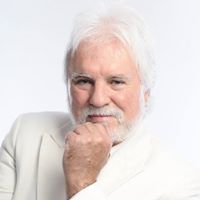Exploring the Buddhist Equivalent to Matthew 7:13-21
The teachings of Jesus, encapsulated in the Beatitudes and other passages of the New Testament, resonate with many for their moral and spiritual depth. One particularly thought-provoking passage is Matthew 7:13-21, which addresses the concepts of choice, intention, and the nature of true discipleship. This passage encourages individuals to enter through the narrow gate, warns against false prophets, and underscores the importance of identifying good and bad fruit—essentially calling for discernment in the path of faith. Matthew 7:13-21 NKJV reads as follows: “Enter by the narrow gate; for wide is the gate and broad is the way that leads to destruction, and there are many who go in by it. Because narrow is the gate and difficult is the way which leads to life, and there are few who find it.”
In seeking an equivalent phrase or teaching within Buddhism, we find that while the cultural contexts are different, the underlying themes of discernment, moral conduct, and the pursuit of enlightenment are strongly present.

The Narrow Path in Buddhist Thought
In Buddhism, the idea of the “narrow path” can be closely aligned with the Noble Eightfold Path, which represents a guide to ethical and mental development with the goal of freeing individuals from attachments and delusions. This path consists of:
- Right Understanding
- Right Intention
- Right Speech
- Right Action
- Right Livelihood
- Right Effort
- Right Mindfulness
- Right Concentration
Similar to Jesus’ urging to enter through the narrow gate, the Eightfold Path emphasizes the need for conscious, deliberate choices that lead to liberation from suffering.
Discernment and Moral Conduct
Furthermore, Matthew 7:15-20 discusses the importance of recognizing true and false prophets by the fruits they bear. In Buddhist practice, this resonates with the teachings on karma and the significance of one’s actions (karma) and intentions (cetana). In Buddhism, it is recognized that actions have consequences, and a person’s character is revealed through their deeds.
The Buddha’s reminder to examine the quality of one’s mind and actions holds a comparable weight. Just as Jesus tells followers to be attentive to the fruits of individuals’ lives, the Buddha emphasizes the importance of mindfulness and self-awareness in cultivating positive actions and thoughts.
In the Dhammapada, a key Buddhist scripture, the verses assert: “By oneself, indeed, is evil done; by oneself, is one defiled. By oneself, is good done; by oneself, is one purified.” This reflects the sentiment in Matthew 7:20 about recognizing the results of actions as indicators of authenticity.
The Ultimate Goal: Liberation
Ultimately, both Buddhism and Christianity call adherents to a higher ethical standard and encourage reflection on one’s choices. In Buddhism, the end goal is enlightenment and liberation from the cycle of birth and rebirth (samsara), paralleling to some extent the quest for eternal life and moral living depicted in Christian teachings.
In conclusion, while Buddhism does not have a direct equivalent to Matthew 7:13-21, it offers profound insights into the nature of choice, moral conduct, and personal responsibility that echo the sentiments found in this passage. Both traditions emphasize the importance of discernment and the moral path one chooses to take, urging followers to seek genuine wisdom and compassion in their lives. Thus, while the language and concepts may differ, the core messages of both teachings reflect a shared human pursuit of truth and virtue.

Grant Edward Rayner